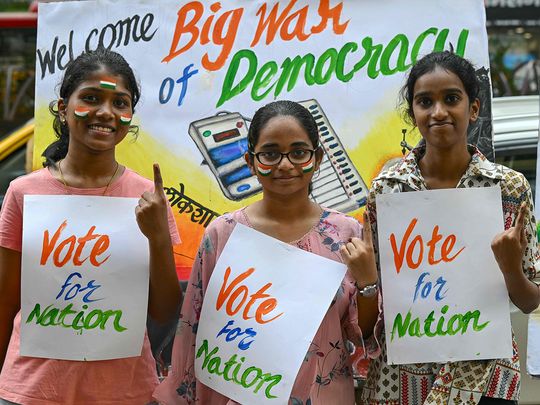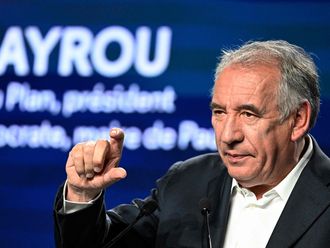
The word of the year 2024 in Indian politics was overconfidence. Politicians and parties went through a roller-coaster ride in the Lok Sabha elections in the summer, as well as in the four state assembly elections later in the year.
Politicians, even the smartest of them, seem to be stuck in an inescapable cycle of overconfidence leading to failure, failure leading to humility, humility leading to introspection, introspection leading to course correction, course correction leading to success, and then again success leading to overconfidence.
This cycle repeats itself with incredible predictability. If there was one lesson of Indian politics in 2024, it was to avoid overconfidence. This cycle speaks of not just Indian politicians but perhaps of all people everywhere.
Around this time a year ago it was unthinkable that the Bharatiya Janata Party led by PM Narendra Modi would not even get a majority in the Lok Sabha elections. Yet it came down from 303 seats to 240. There are 72 Lok Sabha seats won by the BJP in both 2014 and 2019 that it lost in 2024. The party’s underperformance in Uttar Pradesh, Maharashtra, Rajasthan and Haryana could have been fatal had it not been for its expansion in new territories.
From 400 plus to 240
The reasons for the BJP’s Lok Sabha surprise underperformance are by now well-known. From its 400-plus slogan that backfired among Dalits to its inability to assuage Rajput anger to its refusal to give or even promise any freebies, to its open snubbing of parent Rashtriya Swayamsevak Sangh, everything about the BJP campaign showed overconfidence.
A prolonged election over two months in peak summer heat was supposed to help the BJP maximise its campaign but it had the opposite effect. The BJP thought Ram Mandir was its trump card but they lost the Ayodhya seat itself. On the ground, BJP supporters complained of tickets being given to unpopular candidates. They complained of the party behaving arrogantly.
The jaw-dropping underperformance surprised the BJP itself, and proved the best of pollsters wrong. It showed that as long as we have free elections, even a weak opposition can rise like a phoenix if the ruling party makes mistakes.
Humility in Haryana
The BJP quickly course-corrected, went back to the drawing board, started repairing its relationship with the RSS, re-energising its own cadres and re-establishing its compact with lower OBC voters. That’s how the BJP won Haryana.
It’s funny how the BJP did better in Haryana in the Vidhan Sabha than in the Lok Sabha since the opposite was expected. What changed it around was the cycle of overconfidence and failure. The secret sauce this cycle produces is called humility.
In Jammu and Kashmir, an overconfident Omar Abdullah contested a difficult seat in the Lok Sabha, Baramulla, and lost. This loss could have been terrible for the prospect of his party in the Vidhan Sabha elections a few weeks later. Yet perhaps they needed the reality check of overconfidence leading to failure.
By sticking to the basics, the National Conference was able to defeat all kinds of manoeuvres to divide their votes. They swept back to power against all odds in a historic assembly election.
The Lok Sabha elections in Maharashtra suggested there was insurmountable anti-incumbency against the Mahayuti alliance in the state. It would have seemed that a Maha Vikas Aghadi victory was a matter of time.
While a chastised Mahayuti came up with a generous freebie scheme and worked hard to address all their shortcomings, an overconfident MVA had a poor, late and fragmented campaign.
Campaigns matter
The Congress in general over-read the Lok Sabha verdict, leading to an overconfident view that the Indian voter was turning their back on PM Modi and an automatic Congress revival was now around the corner. Yet the elections of 2024 showed us nothing is automatic. The Indian voter cannot be taken for granted.
It also shows us how voters can shift their perspective in a matter of a few months. In December 2023 the BJP won Rajasthan but lost half the seats in Lok Sabha in June 2024. This points to the importance of election campaigns against the traditional importance given to anti-incumbency.
If there is one leader who demonstrated an ability to not be overconfident this year, it was Hemant Soren of Jharkhand. Soren did not take it for granted that his arrest and subsequent bail would get him a victory out of sympathy.
A number of new schemes, an ardent campaign by himself and his wife, showed an effort to earn people’s votes the hard way. Even the Congress in Jharkhand went around doing small public meetings to convert welfare schemes into votes, the sort of effort that was lacking elsewhere.
In 2025, Delhi and Bihar will go to the polls. Both states are interesting enough to keep the spectators entertained.










